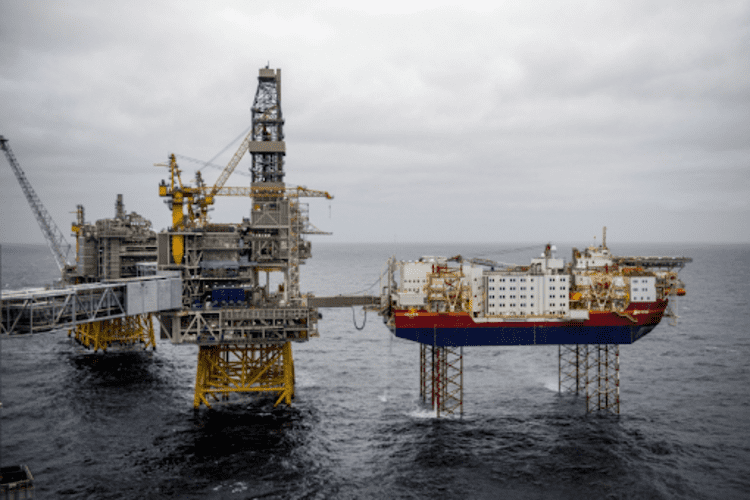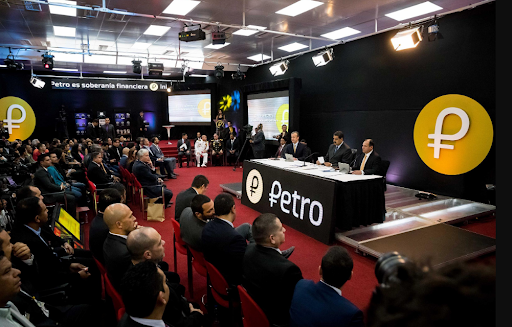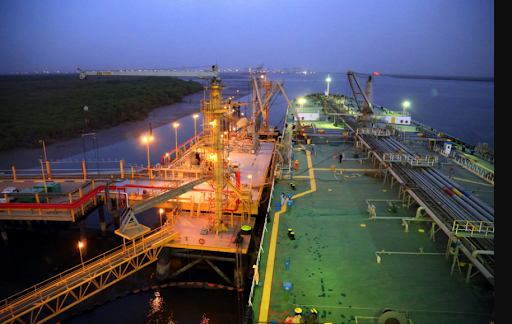Oil Embargo & Crypto Market: What’s the Connection?

Crude oil and major banks are the main things the EU Parliament focuses on in the next round of sanctions. European leaders meet every 1-2 months in Brussel to agree on how to strike at the regime of Vladimir Putin. Some countries’ leaders would like to do it without the consequences for their economies. Such turbulence in the market cannot but affect the financial segment and the state of affairs in a number of developing countries — Argentina, Brazil, India, and more.
The power of the Security Council to impose sanctions is subject to the Charter and to international law. But, the EU member countries’ governments want to approach the matter meaningfully:
“When imposing sanctions, we must do it in such a way as to maximize pressure on Russia and minimize possible risks for the EU economy,” said Valdis Dombrovskis, Vice President of the European Commission.
Russia is the country with the most stringent sanctions regime, but this is not the only case. Personalities like Nicolas Maduro, Oleksandr Lukashenko, and other leaders already have experience in preventing social crises during the sanctions period. It seems unusual, but some positive processes are associated with the introduction of cryptocurrencies.

For example, faced with the threat of economic collapse and new sanctions, the Venezuelan government is investing in cryptocurrency. In December 2017, the President of this Latin American country announced the release of a “National BTC”. According to Nicolas Maduro, the adoption of blockchain technology is to bypass the financial blockade imposed by the United States against Caracas. In total, the government produces 5 billion barrels of crude oil to run this new cryptocurrency.
According to analysts, after the EU oil embargo, the Russian budget will lose the most important source of income. It is unlikely that it will be possible for the government of this country to avoid serious consequences for the economy. Most analysts' forecasts are disappointing for Vladimir Putin. Russia is the third-largest oil producer in the world — 7 million barrels of crude oil and petroleum products per day account for 38.5 percent of total exports. The profit from the supplies to the EU countries amounted to about 10 percent of the total budget in 2021.
The largest volumes of oil from Russia are imported by Germany, Poland, and the Netherlands, while the most diversified markets are in Slovakia, Finland, and Lithuania. 10 out of 27 EU countries have not imported oil from Russia directly since 2020, including Bulgaria, Croatia, and Portugal. Furthermore, the EU's own production is only about 4 percent. From 2016-2019, oil imports from Russia decreased from 3.3 to 2.7 million barrels per day. Iraq, Nigeria, Saudi Arabia, Kazakhstan, Norway, Libya, and the United States are also suppliers. Although negotiations on increasing production for these regions have not yet yielded a significant result.
One way or another, sanctions will cause turbulence in the market. Refineries in India and China could take advantage of this opportunity. Although it is rather doubtful that the enterprises in these regions could quickly be adapted to the processing of Venezuelan oil, for example. Although the situation on the market is not so unambiguous. In March 2022, after an eight-month break, PDVSA increased oil supplies to Cuba — from 0.85 to 1.4 million barrels. According to experts, if Venezuela loses oil refining capacity, the market for gasoline, diesel fuel, and other distillates will collapse.

Saudi Arabia, Iraq, and the United Arab Emirates, which have a spare production capacity of about 3 million barrels per day, could potentially become the new leading sources of oil for Europe, said Magdalena May, head of PIE's climate and energy department.
Despite Saudi Arabia's government announcement of future investments aimed at increasing crude oil supplies in the long term, the OPEC group increased monthly production by just over 0.4 million barrels per day. Such changes are unlikely to greatly affect the financial market, including the implementation of blockchain technologies. Analysts consider this region not the most promising in terms of financial investments.
Oil exports from Norway, Denmark, and the UK could bring an additional 0.4 million barrels per day. In these countries, financial markets are more liberal. This means that the injection of money into the economies can cause additional investment. Part of the money can be redirected to the cryptocurrency ecosystem which is quite developed in this region. Moreover, the United States, Canada, and Kazakhstan have increased oil production in recent years and may increase supplies by 1.5-1.7 million b/d by the end of 2022.
The embargo on oil and gas exports will impact world energy prices. This is because manufacturers can’t significantly increase supply. Some economic uncertainty will impact benchmark bond yields and commodity prices.
In addition to the embargo on oil imports from Russia, the European Union expanded the list of banks excluded from SWIFT. The sanctions will hamper the growth of the Russian financial sector and slow down transactions. In such conditions, interest in cryptocurrency may increase. According to the European Commission, 65 percent will be disconnected from the SWIFT system.
About the author
Melissa Robertson is a freelance author who writes bright articles that engage the audience. She is working for the company ICOholder. Her hallmark as a writer is her ability to put complex things into simple words.